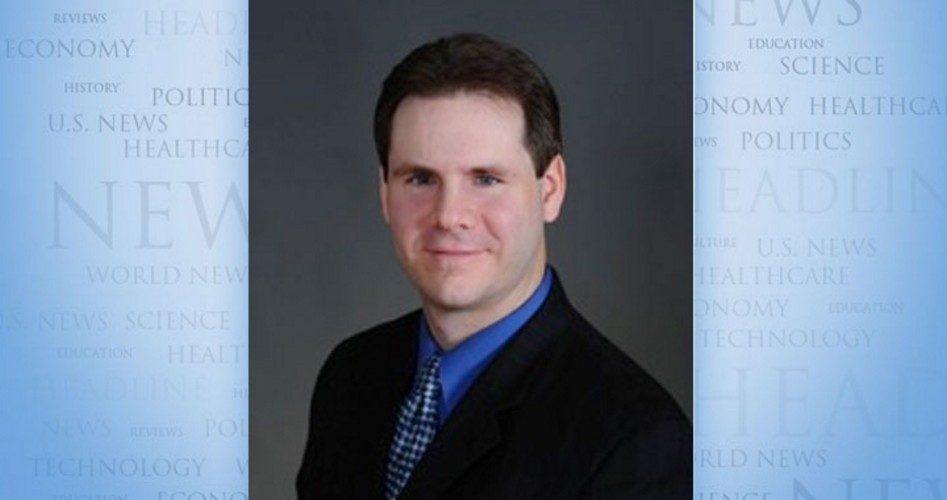
It is true that punishment should fit the crime, but it should also fit the criminals.
The NCAA just announced what sanctions it will impose on Penn State University (PSU) in response to the horrible child sex-abuse scandal that rocked the nation. Almost none of the sanctions, however, make sense. This is because they amount to institutional punishment — not individual punishment. Yet it was individuals who committed the acts of commission and omission in question.
The bulk of the sanctions fall into a specific category and are, reports CBS Philly, as follows:
• Penn State Football will be banned from bowl games and post season play for 4 years
• Initial scholarship reduced from 25 to 15 per year for four years….
• NCAA to vacate all wins of the football team from 1998 to 2011 and record will reflect change
• Football program on 5-year probationary period
Now, I’m no fan of football, but I am a fan of fairness. And harming PSU’s football program does nothing to advance justice. It simply means that the NCAA is going to punish a large number of people, such as the players involved in the program, the new coaches, and students and others who have an emotional or even financial vested interest in the program’s health, who had nothing to do with the scandal.
Then there is the matter of how the NCAA will “vacate” 13 years of the football program’s wins, which has the effect of eliminating famed, and now shamed, PSU football coach Joe Paterno’s status as the game’s most successful coach. But Paterno is dead; if he has cares, they don’t involve athletic triumphs. And what of all the innocent players who were a part of those victories?
Most significantly, though, unlike other examples of vacated wins, PSU’s wins occurred under the rules of the game. And they are part of history. Should we really take a leaf out of Stalin’s book and start erasing history when it displeases us?
NCAA President Mike Emmert justifies the sanctions with the following rationale: “[We want] to make sure that the university establishes an athletic culture and daily mindset in which football will never again be placed ahead of educating, nurturing, and protecting young people.” But this is either posturing or a pipe dream. As a government-commissioned study showed, the incidence of child sexual abuse is 100 times as great in government schools as it was among Catholic priests (and is still occurring), despite the absence of vaunted athletic programs to preserve. So what do these schools place ahead of protecting young people? Education itself? Should we handicap their educational programs to lend the appearance of justice done?
The reality is that whatever an institution’s nature or level of success, those within it will always have careers and reputations to protect; this is why we see a desire to cover up scandals in all walks of life. It is a human problem, not a football problem.
But something also widespread is the modern American problem of institutional punishments. And whether it’s the Catholic Church, the Boy Scouts, a corporation, or PSU, the issue is always the same: There’s a disconnect between those who commit the crime and those who do the time. Of course, if the matter is compensatory damages, there’s often no place the money can come from other than the institution of which a transgressor was a part. And since institutions take responsibility for those representing them, such awards are morally justifiable. But should this be extended to punitive damages — which are often astronomical — when those bearing the punishment have clean hands?
For example, who is hurt if the Boy Scouts have to pay a large punitive award? It’s not the one or two employees who did wrong. It’s those millions of members who pay the freight and, even more tragically, the often poor children who would have been helped with that money but now cannot be. That’s not justice.
This brings us to the following PSU sanction: “NCAA is imposing a fine of $60 million on the University (equivalent to proceeds of one year) — An [sic] endowment will be established to be used around the nation to serve victims of child abuse.” Of course, this sounds noble and may even do some good; although it would be no surprise if it turned into a slush fund. Putting that aside, however, who pays? Certainly not the central villain in the scandal, Jerry Sandusky, or the individuals party to the coverup. It’s those who generate the football program’s revenues, which may even include alumni and taxpayers.
We also shouldn’t forget that such misdirected punishments aren’t befalling the aforementioned government schools that are currently involved in covering up child sexual abuse. After all, their stories don’t involve legendary names and games or a target (the Catholic Church) the media love to hate, so we neither care nor talk about them. As to this, is the NCAA mainly driven to do the correct thing or the politically correct thing with regard to PSU? Remember, this is the organization that, nauseatingly, threatened sanctions against the University of North Dakota if it didn’t drop its football team’s “Fighting Sioux” nickname. And, in imposing its sanctions against PSU, I believe it’s driven by a desire to protect its reputation as much as the university was.
It shouldn’t surprise anyone that there are calls today to give people who were never slaves reparations paid for by people who were never slave-owners. It’s just a logical extension of a standard that separates consequences from criminals.



